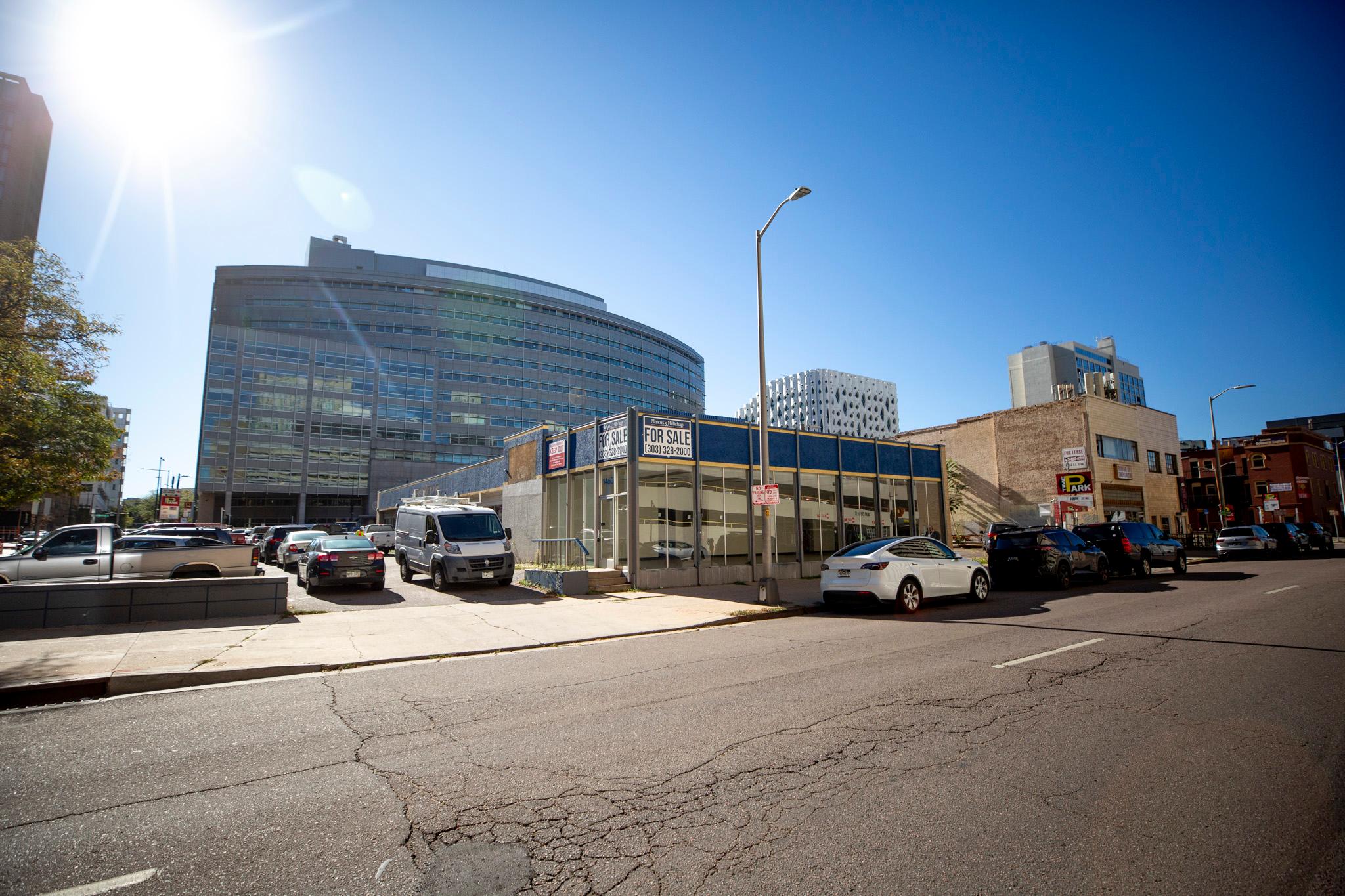Denver City Council shot down the city’s plan to purchase and redevelop a former Goodyear auto repair shop near Civic Center.
The plan was to develop the site into affordable housing. But council members were concerned that the purchase would be funded from the city’s emergency capital improvement funds, which currently total $7.4 million.
The property is at 1460 and 1480 Tremont Place.
Lisa Lumley, Denver’s real estate director, said the city was on a tight timeline to wrap the purchase, as the sellers are eager to sell and may walk away from the deal if it doesn’t happen quickly.
Councilmembers Flor Alvidrez and Shontel Lewis called out the purchase for discussion.
“At a time when Denver is in a financial crisis and facing a massive backlog of urgent needs across our city, it is fiscally irresponsible to use contingency dollars for land acquisition,” Alvidrez said at Tuesday night’s City Council meeting.
The money would be better used to fix poorly maintained shelters or should be left for emergencies, she argued. Contingency capital dollars are generally left for emergency repairs and replacement of infrastructure.
“We lack funding for critical infrastructure, and it's important to explain to our residents why we don't have money to fix these problems,” Alvidrez said. “Yet we're being asked to spend emergency reserves to buy downtown property in a depressed real estate market where nearly everything is for sale and no one else is buying.
“This is not a once-in-a-lifetime opportunity,” she continued. “We owe it to the residents to protect contingency funds for what they're meant to be: a safeguard in times of crisis, not a slush fund for speculative deals.”
Lewis suggested the emergency funds could be used to purchase a new homeless shelter and said she is uncomfortable moving forward with the deal before voters weigh in on the Vibrant Denver bond. If that passes in full, the city would have nearly $1 billion to pay for maintenance and construction projects — include $60 million for housing and shelter projects. If the ballot measure fails, the contingency dollars would be even more critical for addressing emergency needs, Alvidrez said
Councilmember Chris Hinds argued for buying the old Goodyear. The Vibrant Denver bond would not include funding for capital improvement projects in downtown beyond cultural facilities. Waiting for the bond to pass makes no sense, he said, since it would not be addressing affordable housing in the city center. (The bond proposal doesn’t dictate where exactly affordable housing dollars would be spent.)
The city’s priority has been to put people experiencing homelessness in housing, not shelter. And he argued the purchase of the land would be economically efficient and boost that goal.
Mayor Mike Johnston has been a proponent of building more affordable housing downtown. It’s been a regular talking point in conversations about the Downtown Development Authority, the 16th Street Mall renovation and the city’s housing priorities.
The city has previously purchased land and properties with capital improvement emergency dollars.
“If you go back and look historically, we have utilized contingency for this type of purpose in the past,” said Jackson Brockway with the Department of Finance. That included buying and repairing shelters.
Councilmember Amanda Sawyer agreed that affordable housing was important. But she argued the city has been “trying to be all things to all people” and with other maintenance projects that need to be wrapped, the city would be better off spending the money on recreation centers, filtration systems and street lights.
“This is a great opportunity,” she said. “It doesn't mean that we have to take it, and I don't think we should.”
Council President Amanda Sandoval argued it's more important to invest in each of the council districts than to put more money downtown. This would be the first time, she said, she would vote no on an affordable housing project.
“There’s not parity across the city,” she said.
Seven council members ultimately opposed the purchase. Council members Hinds, Kevin Flynn, Darrell Watson and Paul Kashmann voted in favor. Council members Sarah Parady and Stacie Gilmore were not in attendance.











